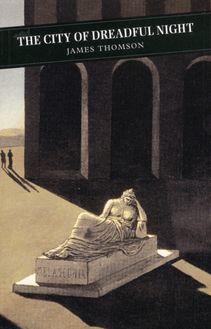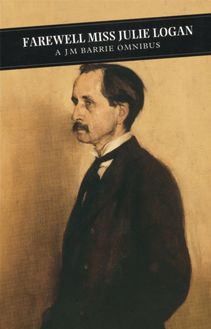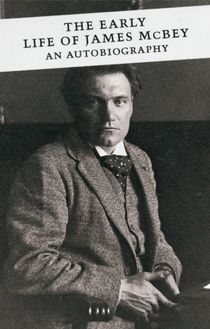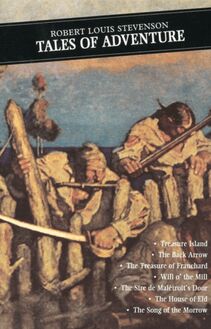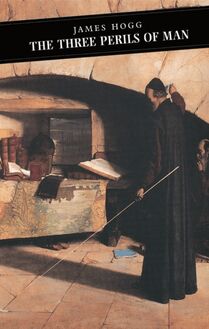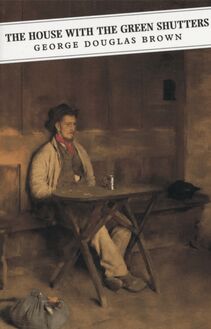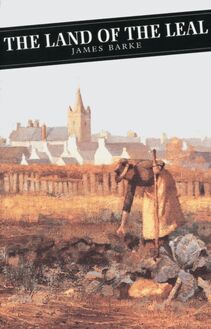Lying Awake , livre ebook
138
pages
English
Ebooks
1997
Vous pourrez modifier la taille du texte de cet ouvrage
Obtenez un accès à la bibliothèque pour le consulter en ligne En savoir plus
Découvre YouScribe en t'inscrivant gratuitement
Découvre YouScribe en t'inscrivant gratuitement
138
pages
English
Ebooks
1997
Vous pourrez modifier la taille du texte de cet ouvrage
Obtenez un accès à la bibliothèque pour le consulter en ligne En savoir plus
Publié par
Date de parution
15 avril 1997
Nombre de lectures
0
EAN13
9781847675361
Langue
English
Publié par
Date de parution
15 avril 1997
Nombre de lectures
0
EAN13
9781847675361
Langue
English
Catherine Carswell
LYING AWAKE
An unfinished autobiography and other posthumous papers
Edited with an Introduction by
JOHN CARSWELL
Si l’usage l’eût permis, j’aurais dû écrire plus d’une fois à la marge: ‘ cum grano salis’ . RENAN : Souvenirs d’Enfance et de Jeunesse
To be bound for ever by the arbitrary accident of one’s memories: what an idea of immortality!
Author’s Note
Contents
Introduction
Note to the second edition
PART I AUTOBIOGRAPHY
I The Clock
II Glasgow
III In My Father’s House
IV Mount Quharrie
V Holidays
VI Town and Country
PART II AUTOBIOGRAPHY
VII The Zoo: The Dream
VIII Frank: The Boards
IX Florence: The Bank
X Music: The Arts
XI Letters and Women
XII Men and Women
XIII Age and Youth
XIV Youth and Age
XV Intimations of Mortality, and of Senility
PART III FRAGMENTS
PART IV POEMS
PART V LETTERS
Introduction
MY mother left this book unfinished. She did not wish the work of her last years to be published until after her death, and although she worked persistently at it until her last illness, she refused to think of this book ‘about herself’ as pressing, but rather as a reflective and prolonged spinning of the various threads of her life. 1 However long she had lived, I think she would still have left the book behind still incomplete. In one of the many notes found among the material for this book – notes meant for her own guidance but also serving as finger-posts for a future editor – she says as much: ‘ End . Make it abrupt; no reason why it should ever end. Not in any form though informed by a theme. Merely an attempt to give the texture.’
She died in 1946, a few weeks before her sixty-seventh birthday and very nearly three years after writing to me that she was ‘working on something longer for which I’ve been making notes for years.’ Every now and then she sent me a passage or referred to the tussle with ‘the book I’m trying to write’, and the value she put upon it was a strange one. She mentioned once with mild disdain an excited author she had met purring over his first proofs; but after an air-raid she wrote that, ‘What I think of most at the moment is how disgusting it would be for my papers and bits of things to be destroyed.’ She set no store by her book (though she had lived by letters for many years past) but she valued it, perhaps, more than any of her previous work. During three difficult years, this book, ‘so eagerly begun’, and pressed on – ‘today I made myself write for some hours at my book’ – was the recurring ground-bass of her life. The war, her friends, her movements about England, even her illnesses – and she had one serious illness during this time – never succeeded in diverting her from this work. They were built into it, as suited her purpose.
During most of this time I was serving in the East, and heard, though constantly, only by letter. I knew, or had been told, that some day I should be the editor of this book, but I had every reason for hoping that day would not be soon. Although, when I returned to England in 1945, my mother was sixty-six, it never struck me that she was old; and her last illness was sudden and catastrophic. Not long before its onset she had been through and destroyed a great number of her many papers; but I am certain that everything she meant for this book survived. She had not yet given it a title, nor had she ever drawn up (so far as I have been able to discover) any complete scheme of the way in which she saw the book as a whole. She left me, too early, to understand and make good her intentions.
Before I went abroad I would neither have hoped nor have dared to attempt to do this; but four years of absence and constant correspondence brought me to know my mother and to understand her better, perhaps, than all the years that I had till then spent close to her. I began to understand how she had made a calling, not a profession of letters – the distinction, of which my mother would have approved, is Virginia Woolf’s; and in some ways I had always accepted this fact, as children and adolescents do. But then I came to see how it had been achieved, and at what expense and labour. The reading and editing of the material for this book have enlarged that awareness still more. As she says in the course of the book itself, and in many of her letters, she could not but be a writer, and though she once exclaimed to me, ‘It is awful feeling that one would rather do anything than write!’ She immediately added, ‘But one has to set against this the undoubted sense of conquest in having written ’.
She was a frank critic, both of her own and other people’s work, particularly when it smacked of the kind of ‘intellectualising’ (as she called it) which marred a hopeful essay I once sent her from abroad: ‘too many thoughts in it and not enough thought’ was her comment. She believed that successful writing demanded the history of ‘thought, effort, secret failure’ which had been her own experience. ‘How ill-read some of these lads are,’ she wrote to me once of that one among my contemporaries whom I had always thought the best read man I knew. He had, I think, owned up to having read only one novel by George Eliot. Her own reading, while she was writing this book, was wide, various and largely unfashionable – Herzen, Alfred de Vigny, the Prince de Ligne, Dickens, Rabelais and T. S. Eliot, and ‘for several weeks nothing but a small French dictionary – every word from A to Z’ – are random samples from a single year’s correspondence. ‘As it is I rarely get started to the book till after supper, and my reading is done mostly in bed between 1 and 2.30 a.m. Then, though I don’t usually get up at all early, I get sleepy during the day. Yesterday I lay on the floor and slept for two solid hours.’
The book she was writing at this time – this book – was not intended to be a simple narrative of her own life. Even if she had lived to finish it I do not think she would have tried to give anything like a description of her most active years. The plan was rather to stake out her position in childhood and in old age, and to weave across the years which lay between, from one charted position to the other. ‘I was meant ,’ she wrote, ‘if I may use a questionable expression which sadly dates – I was meant perhaps to be a child and an old woman. I did my best in between, but in age the ecstasy returns without the agony, though it is not forgotten.’ This was the theme she hoped would inform the book, and even in this unfinished state one can see that she was successful. The two positions are clearly stated in detail; the process of casting threads between them has been begun; the texture can be discerned. Its author would have expanded and improved this book if she had lived, but she would not have wanted to alter its nature.
Some of the letters collected at the end of this book – particularly those to Florence McNeill, will help to supply those middle and active years which my mother deliberately passes over almost in silence. The account which she gives stops short at the moment her career was beginning, when, beautiful and talented, she had just come back to Glasgow after studying music for two years at Frankfort. But instead of teaching music she turned to the Glasgow School of Art and then to Glasgow University then for the first time admitting women. She was studying English Literature and at the end of her first year was promoted to read honours under one of the university’s stars, Professor Walter Raleigh. She was twenty-four.
In 1904 she made her first, and an unhappy, marriage, which, after an early separation, was in the end annulled. 1 She returned to Glasgow with her daughter Diana, and began a serious career as dramatic and literary critic, becoming a regular member of the staff of the Glasgow Herald . In 1912 the death of her mother dissolved the household in which she had been brought up (her father was already dead), and with her daughter she moved to London.
As a literary reviewer and dramatic critic on The Observer under St John Irvine she began to make a name. With Ivy Low, later the wife of Maxim Litvinov, she came to know D. H. Lawrence – she describes the beginning of this friendship in the early pages of The Savage Pilgrimage , the narrative of Lawrence which she wrote shortly after his death. The friendship between them was one of the closest of both their lives. It was Lawrence who encouraged her to press on with the novel she had already begun about her youth in Glasgow, and in 1920 Open The Door! appeared as a prize-winning first novel.
In 1915, five years before the publication of Open The Door! , she married Donald Carswell, whom she had known in Glasgow before he too left Scottish for London journalism. But though they had the profession of letters in common, his approach to it was very different from hers. His training and interests were more academic, and his ambition in writing was to express his knowledge – which was great – rather than his experience or his imagination. He was a literary craftsman with a high standard of style, perfected over years and maintained with patient care. Like many craftsmen, too, he was by modern standards unproductive, working when he felt inclined and refusing to part with his work until it had undergone all the processes which his skill could supply. This technical skill he put at the disposal of the native literary ability which he found in his wife, and considered greater than his own.
It was a happy marriage, both of talent and temperament, even though the talent and temperament brought by each partner were so different. They were complementary to each other, and each entered into the other’s work not only as critic (friendly, often severe), but, in my mother’s case, as typist, and in my father’s as legal adviser (he was a barrister who had early given up practic
